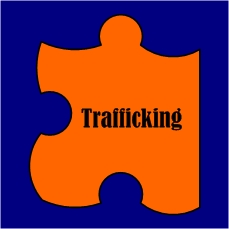” A Liberian official says President Ellen Johnson Sirleaf has shut down a government office suspected of issuing fraudulent birth certificates to facilitate child trafficking.
Deputy Justice Minister Benedict Sannoh told The Associated Press that the decision to close the Bureau of Vital Statistics was taken last week after the government received “increasing reports” of the illegal practice.
Liberia requires a birth certificate in order to obtain a passport.
Sannoh said some of the victims were Liberian and others were from regional neighbors such as Guinea and Ghana. He said the suspected destination countries included the United States and Australia.
In its 2013 report on human trafficking, the U.S. State Department said Liberia was a source, transit and destination country for adults and children subjected to forced labor and sex trafficking.”
Liberia shuts office over child trafficking fears
[New Zealand Herald 7/19/13 by Associated Press]
REFORM Puzzle Piece

Update: DOS has issued a notice: See here:
“Moratorium on Intercountry Adoption Lifted
On June 30, 2015, President Johnson Sirleaf announced the lifting of the moratorium on intercountry adoptions. The official press release of the announcement can be read on the Liberian Executive Mansion website. The U.S. Embassy in Monrovia understands a formal press conference is currently scheduled for Thursday, July 2. No further information is available at this time. The Office of Children’s Issues and the U.S. Embassy in Monrovia will provide updates on adoption.state.gov as soon as more information becomes available.
If you have any questions about this notice, please contact the Office of Children’s Issues at 1-888-407-4747 within the United States, or 202-501-4444 from outside the United States. Email inquiries may be directed toAdoption@state.gov. ” ”
***
“President Ellen Johnson Sirleaf has lifted the moratorium placed on child adoptions in Liberia and has directed that the laws, regulations, and standard operating procedures for adoption be strictly adhered to.
According to an Executive Mansion release, Government has amended the Domestic Relations law, which explicitly includes processes for inter-country adoptions. Government has also put in place Standard Operating Procedures and Accreditation Guidelines with strong safeguard measures for both Domestic and inter-country adoptions. The new Standard Operating Procedures provide for appropriate action and review by the Probate Court and by the Bureau of Immigration and Naturalization.
The new Standard Operating Procedures also provide for continual monitoring of an adoptee even after the child leaves Liberia. Additionally, preference for inter-country adoptions will be given to adoption agencies whose home country is a “Hague Convention Country” because in those countries the governments are under international obligation to monitor and provide protection for adopted persons.
This will be done through constant monitoring of adoption agencies and by ensuring such agencies are compliant with the policies of the Hague Convention.
The Ministry of Gender, Children and Social Protection will be the line Ministry authorized to accredit adoption agencies for both Domestic and inter-country adoptions after proper vetting. By law, the Ministry of Gender can accept and accredit only a few agencies and after prior clearance of the applicant by the Ministry of Justice.
The new standard operation procedures are in response to the changing times and evolving challenges.
It can be recalled that during President Ellen Johnson Sirleaf’s 2009 Annual Message to the Honorable National Legislature, she informed them that the adoption process in Liberia had gone awry. She therefore placed a moratorium on inter-country adoptions.
The Liberian President termed the Adoption Law then in force as obsolete; having been approved during the 1950s. She indicated that the law was not in harmony with the current international legal framework that deals with adoptions; neither did the law contemplate calamities caused by nature or by humans that would separate children from their biological parents and other immediate family. The law also did not contemplate circumstances that would coerce biological parents to give their children to other persons to be reared in foreign lands.
She stressed that as a result of the Liberian civil war, many desperate Liberians took different child care steps to which they were unaccustomed. Many were misinformed about adoptions. Many Liberians thought adoptions were temporary measures. They thought their children would be taken abroad for school and that the children would return periodically to visit their biological parents as these biological parents became heartbroken when they discovered otherwise.
President Sirleaf further indicated that adoption agencies operating in the country were not carefully vetted or licensed. She said though orphanages were established to cater to the needs of children whose parent(s) died during the war or who were involuntarily separated from their parent(s), frequently, these orphanages were not governed by clear laws and regulations. Thus, some orphaned and adopted children were made vulnerable to abuse, neglect, human trafficking, exploitation, and other violations of human rights.
She said Government was alarmed at the situation and determined that affected Liberian children must be cared for properly and be given opportunities to better standards of life, education, and security.
The need for proper adoption mechanisms and regulatory measures for orphanages to address the needs of affected children was again made evident in the aftermath of the crisis brought about by the Ebola virus disease. Many children lost their biological parents and their nuclei families. “
President Sirleaf Lifts Moratorium on Child Adoptions in Liberia [E Mansion 6/30/15]



Recent Comments